As part of a discussion with Entertainment Weekly, Kirkman was asked who his favorite character in the comic was. At first, he demurred from answering, before elaborating on why his favoritism was, in fact, a bad sign for the characters of The Walking Dead.
Rather than affording them a greater role in the plot, or protection from the most vile carnage the series had to offer, Kirkman’s favoritism actually resulted in more suffering for his characters, most often leading to them being dispatched in the franchise’s most brutal, if memorable, moments.
Horror legend Stephen King’s 2006 novel “Cell” provides a perfect explanation for the zombie outbreak in Robert Kirkman’s Walking Dead comic.
Robert Kirkman Explains Killing His Most Beloved Characters
For The Sake Of The Story
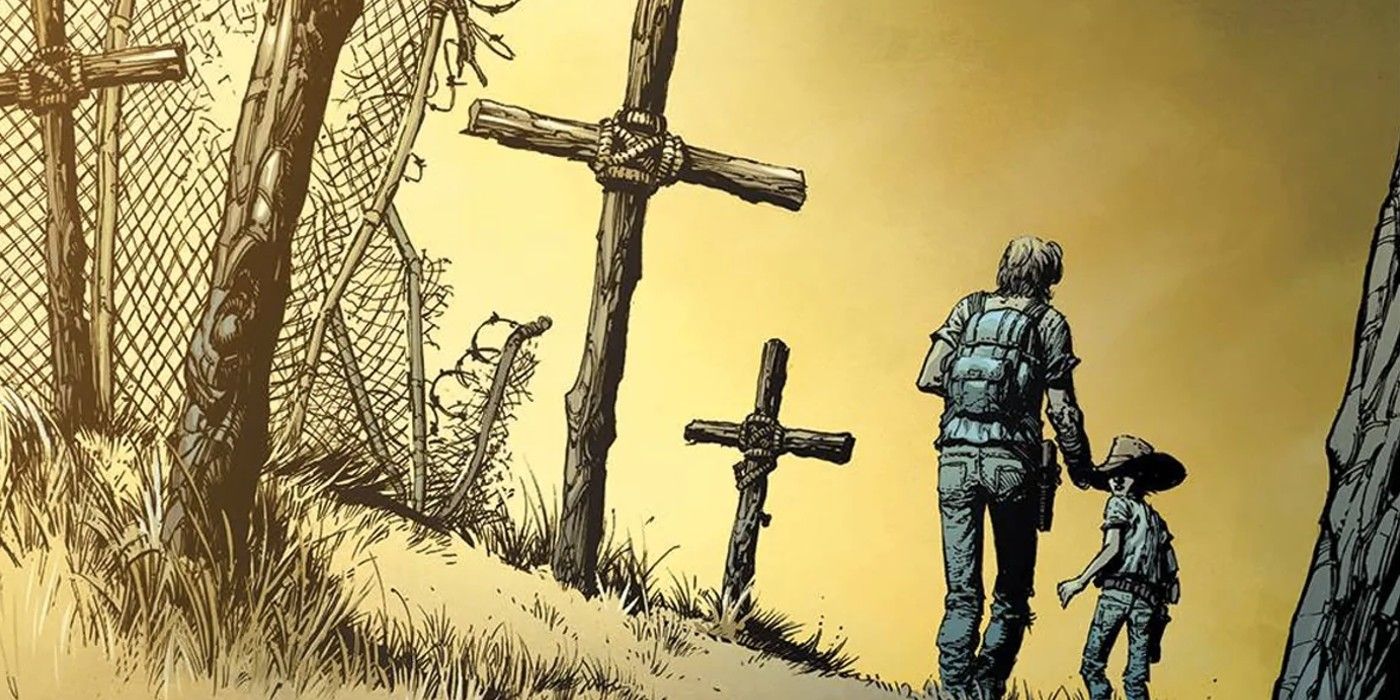
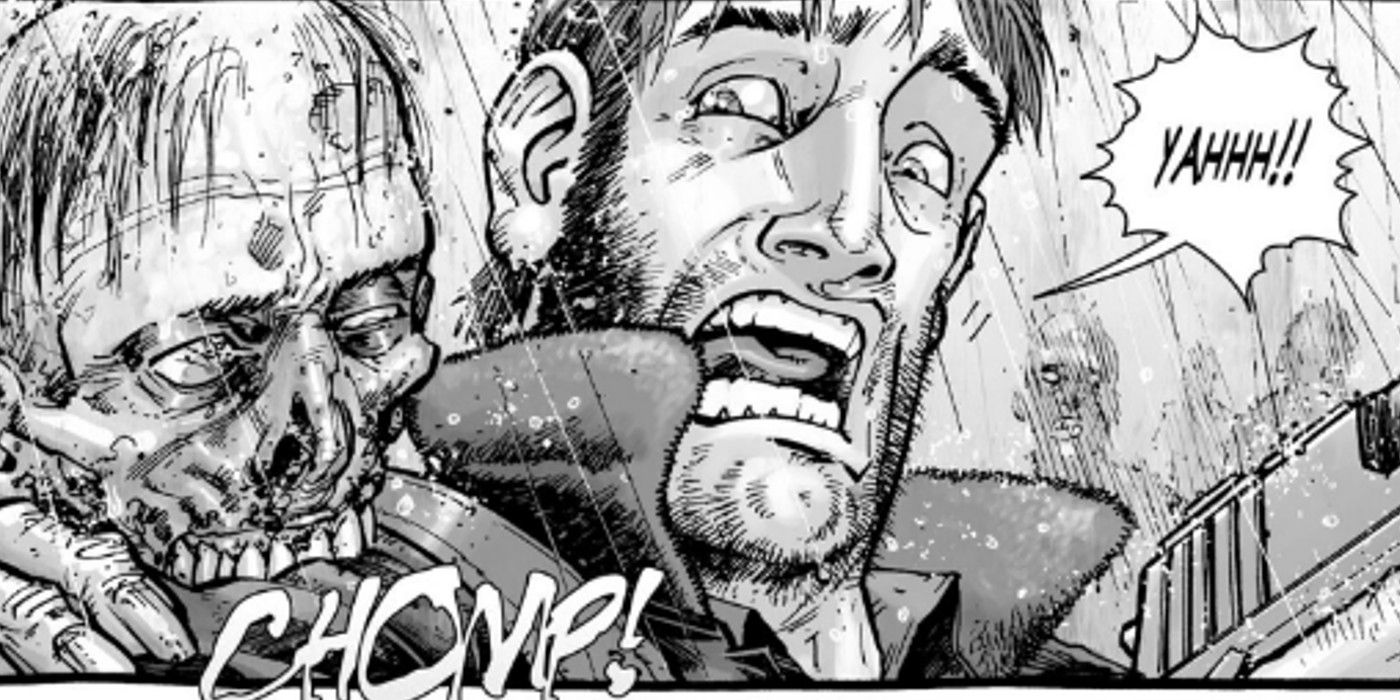
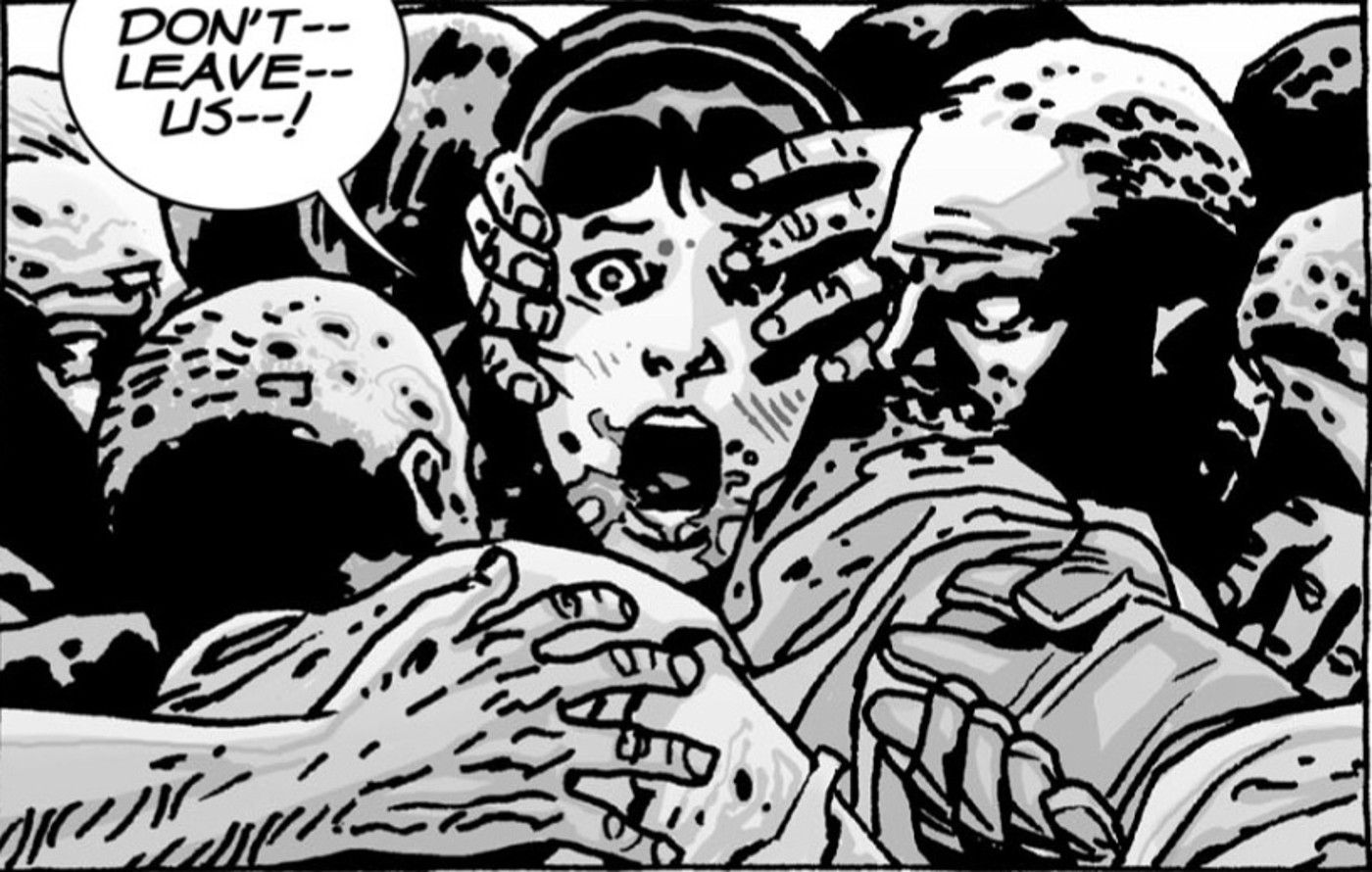
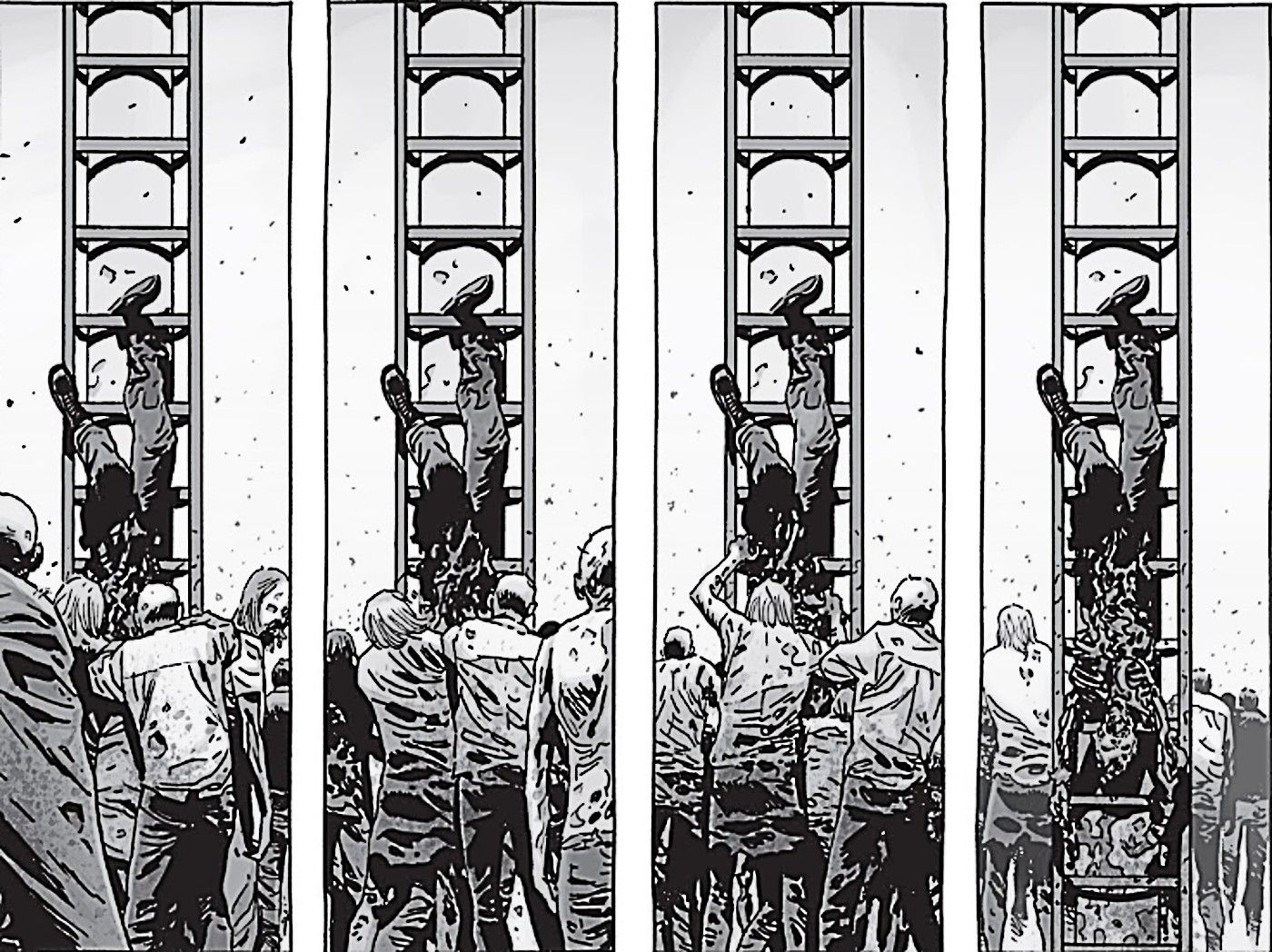
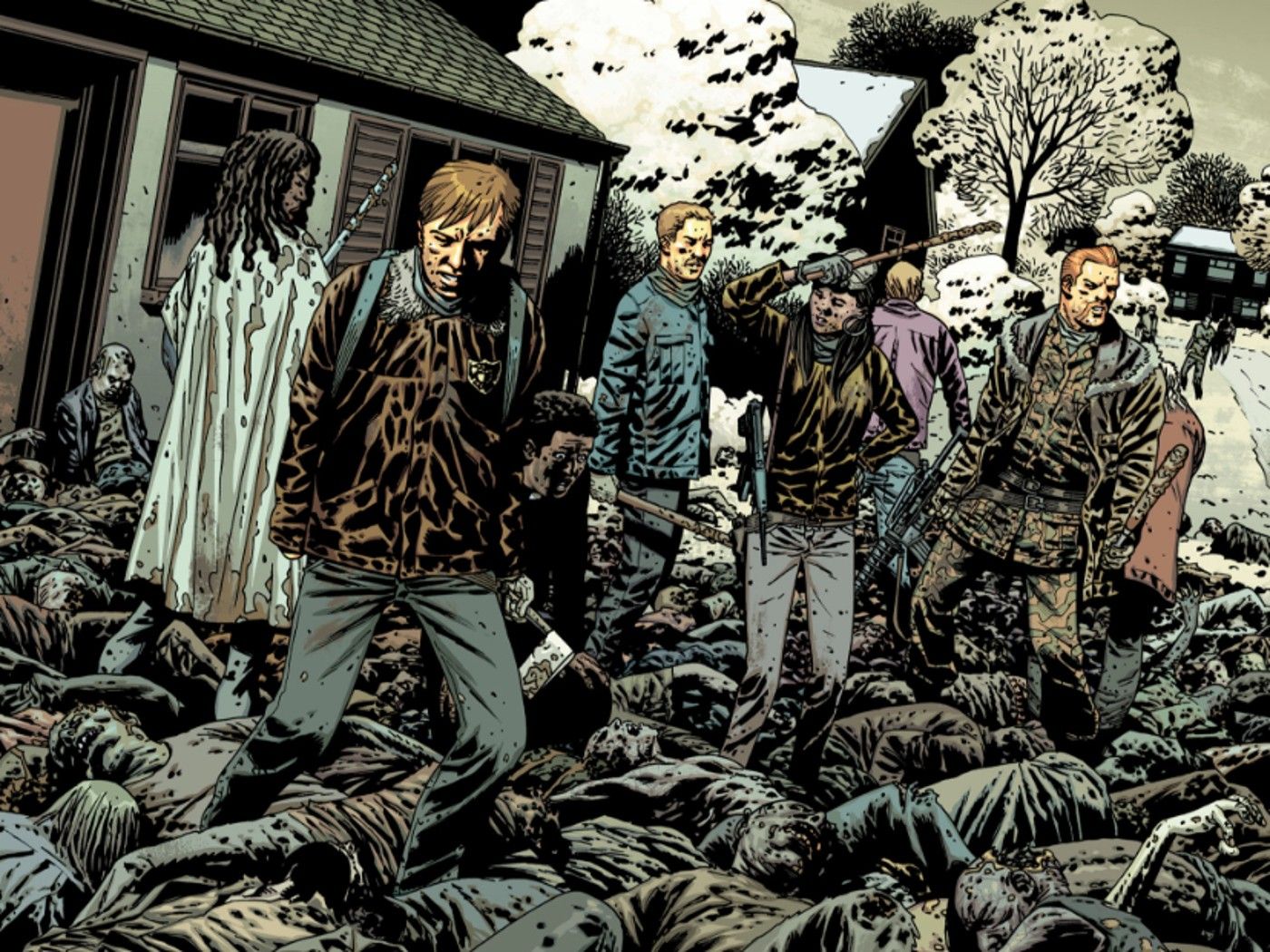





More than just a means of setting the series’ tone, or a product of its genre, character mortality was vital to shaping Walking Dead’s story trajectory from start to finish.
While Robert Kirkman at one point went on record naming Negan as his favorite Walking Dead character, his earlier answer to the question – from an interview with Entertainment Weekly in 2016 – offered a noteworthy insight into the process of crafting the zombie comic’s story. At the time of the interview, The Walking Dead comic was still several years from its unexpected conclusion, which came just shy of its two-hundredth issue. Kirkman explained to EW that his fondness for certain characters could, at times, disrupt his focus on the overall story he was telling.
Though Rick Grimes was certainly the central character of the series – and ultimately, as close as The Walking Dead came to having a hero – creator Robert Kirkman averred that the story had no true, single protagonist. Rather, the plot was driven by the central question laid out in its early issues, which asked whether humanity could band together in the face of a civilization-ending threat, or if survivors of the zombie outbreak would destroy themselves before the undead could. As fleshed-out and lifelike as Walking Dead’s characters were, they always existed in service to their creator’s larger thematic concerns.
To this end, if a character became too important to Kirkman, it was usually an indication that their doom was imminent. As he explained:
You know, I don’t really have a favorite. I tend to kill those, just because when I find myself real attached to a character, or if I find myself wanting to write them more and more and steering more story toward them, I kind of realize that that means that audience investment in that character is extremely high, and I don’t want it to affect the story too much by focusing too much on that character. And that tends to make me want to kill them.
This approach to narrative may seem counterintuitive, in contrast to the methodologies of other creators, but Walking Dead’s success makes it evident that Kirkman’s instincts were almost always correct when it came to character deaths. More than just a means of setting the series’ tone, or a product of its genre, character mortality was vital to shaping Walking Dead’s story trajectory from start to finish.
Death Was Never Cathartic In The Walking Dead
A Constant Reminder Of Mortality
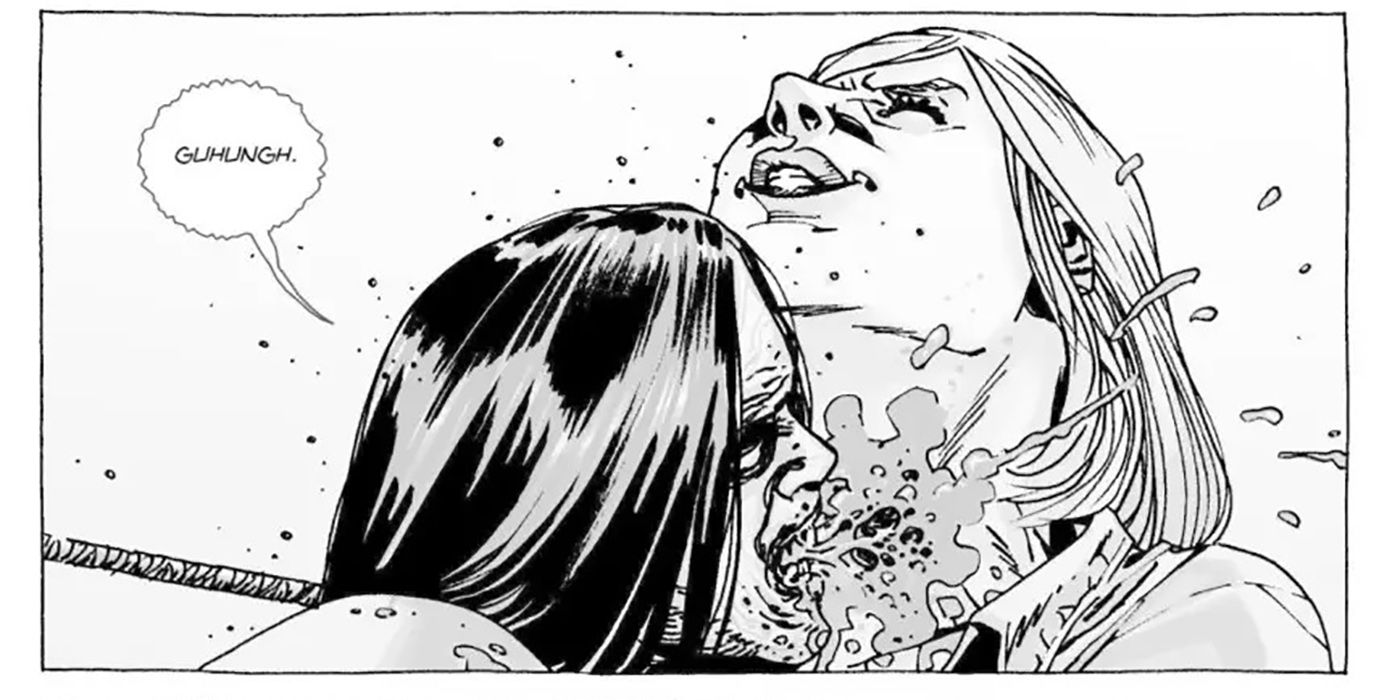
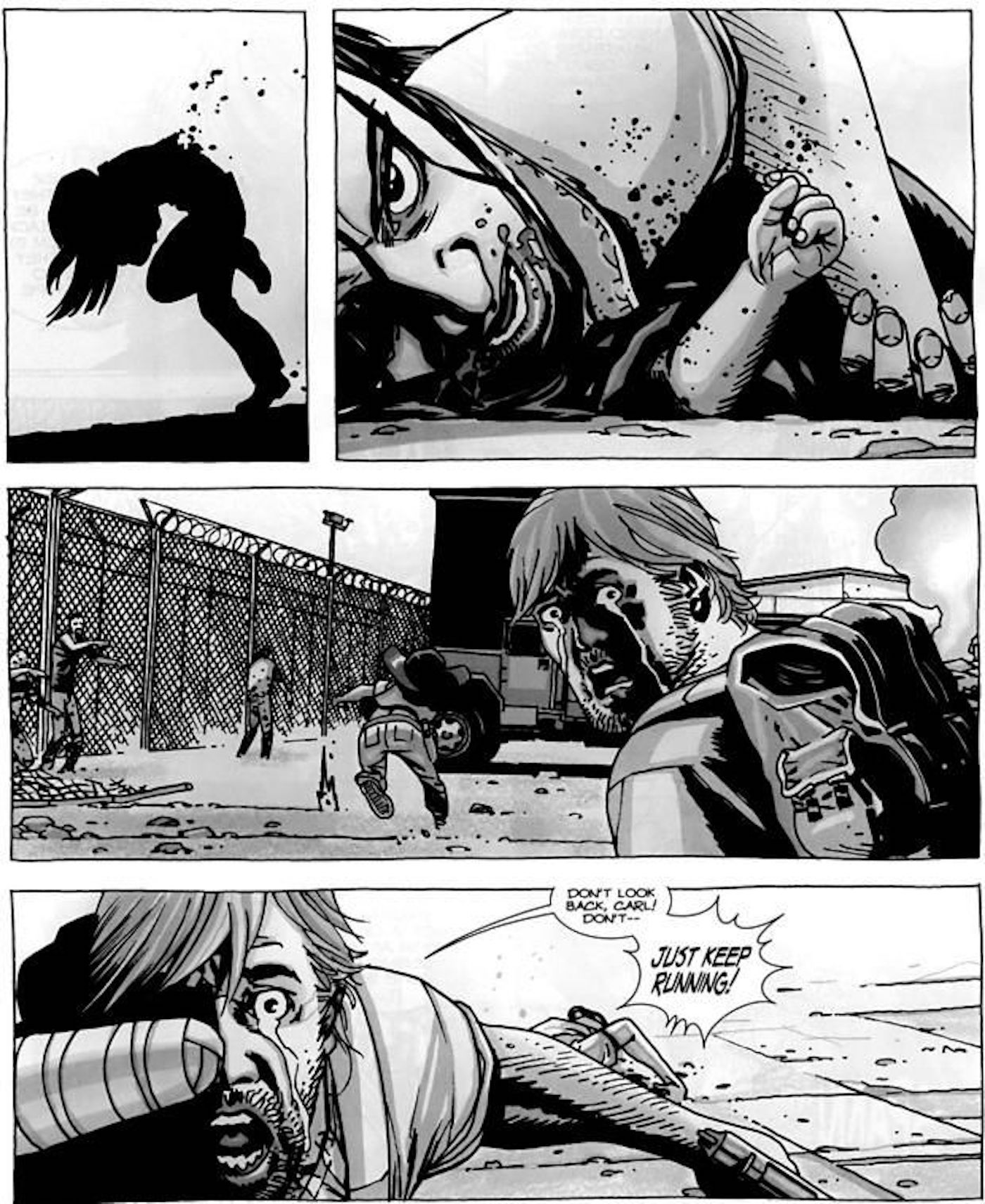
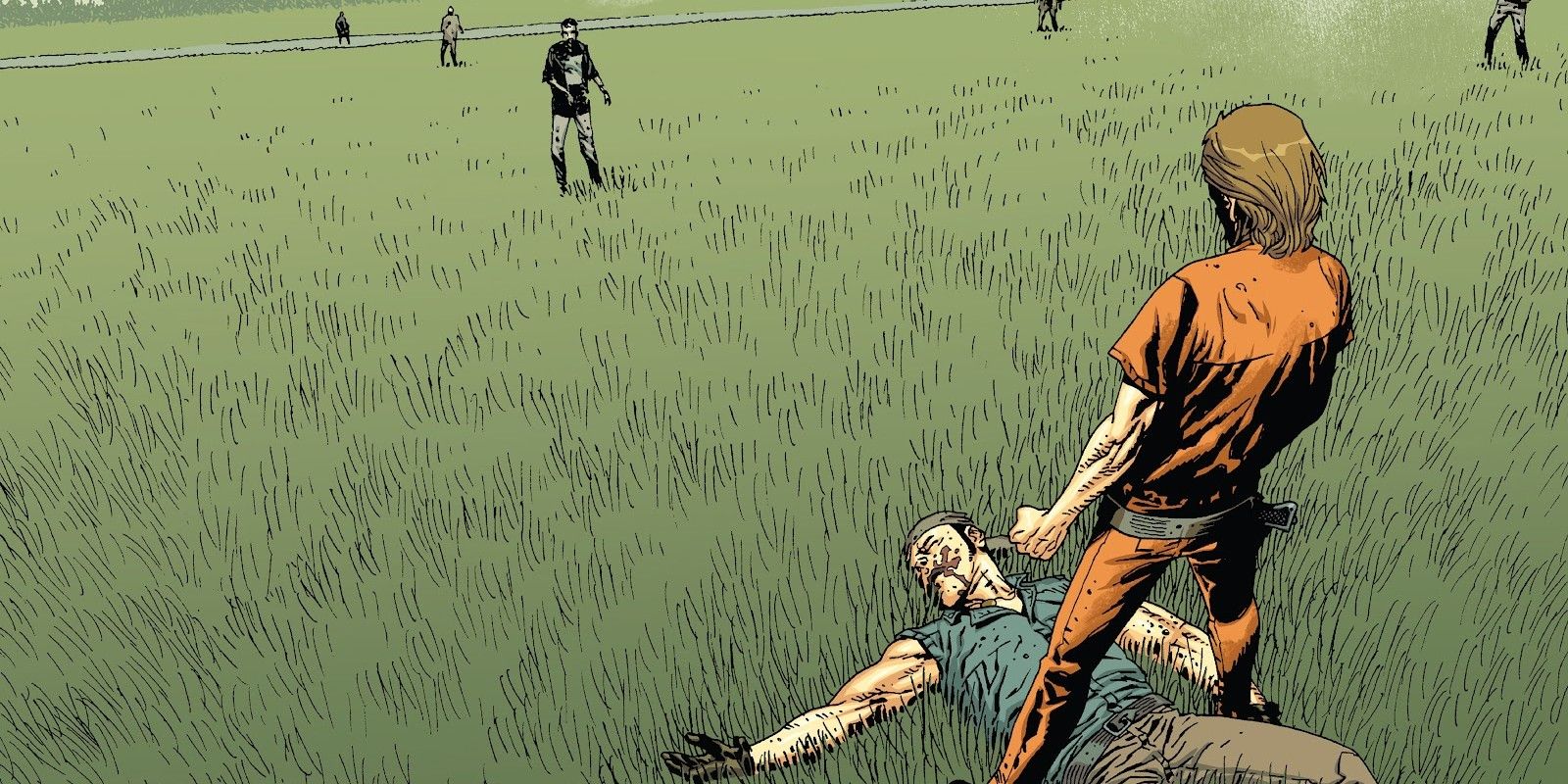
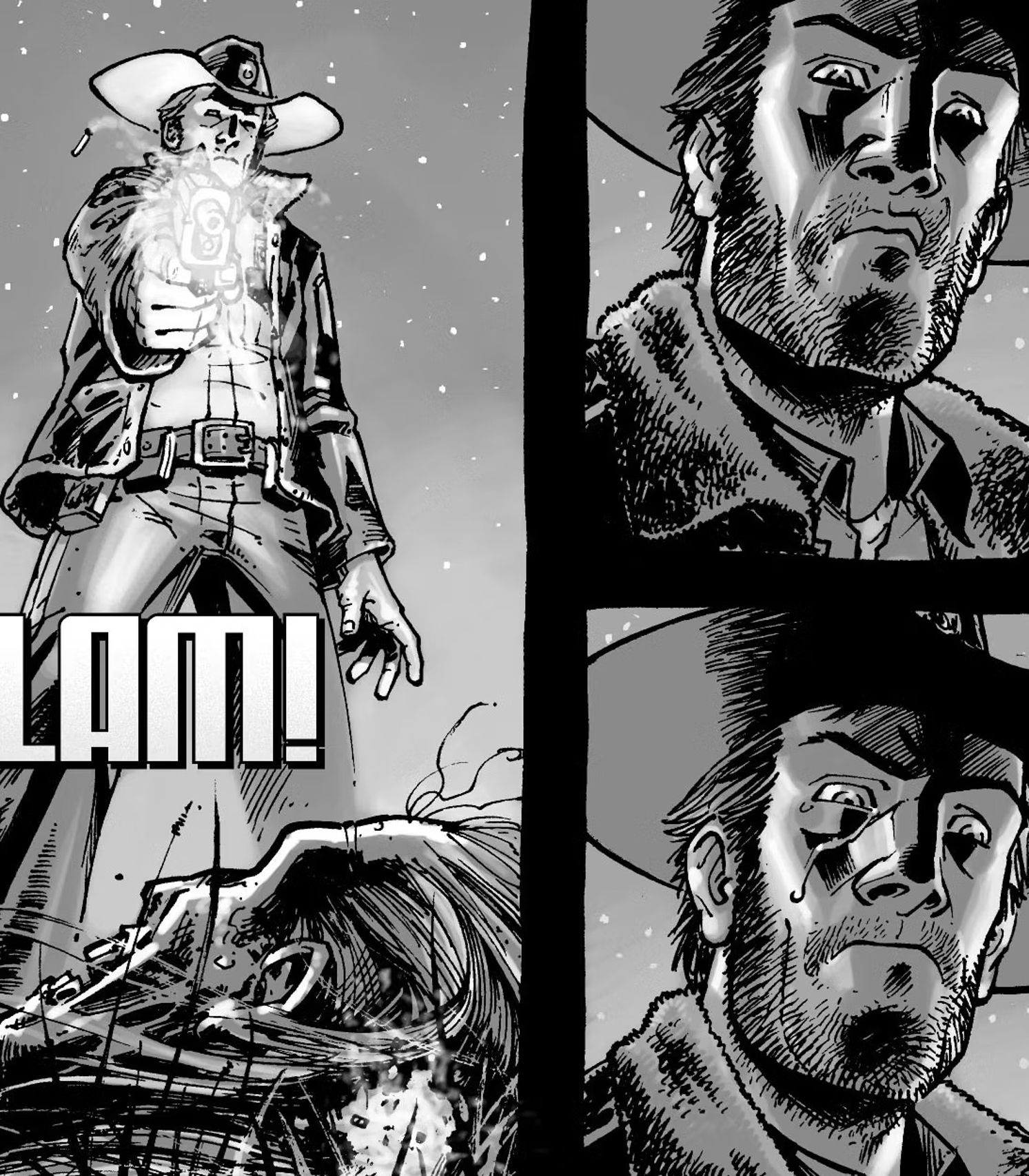
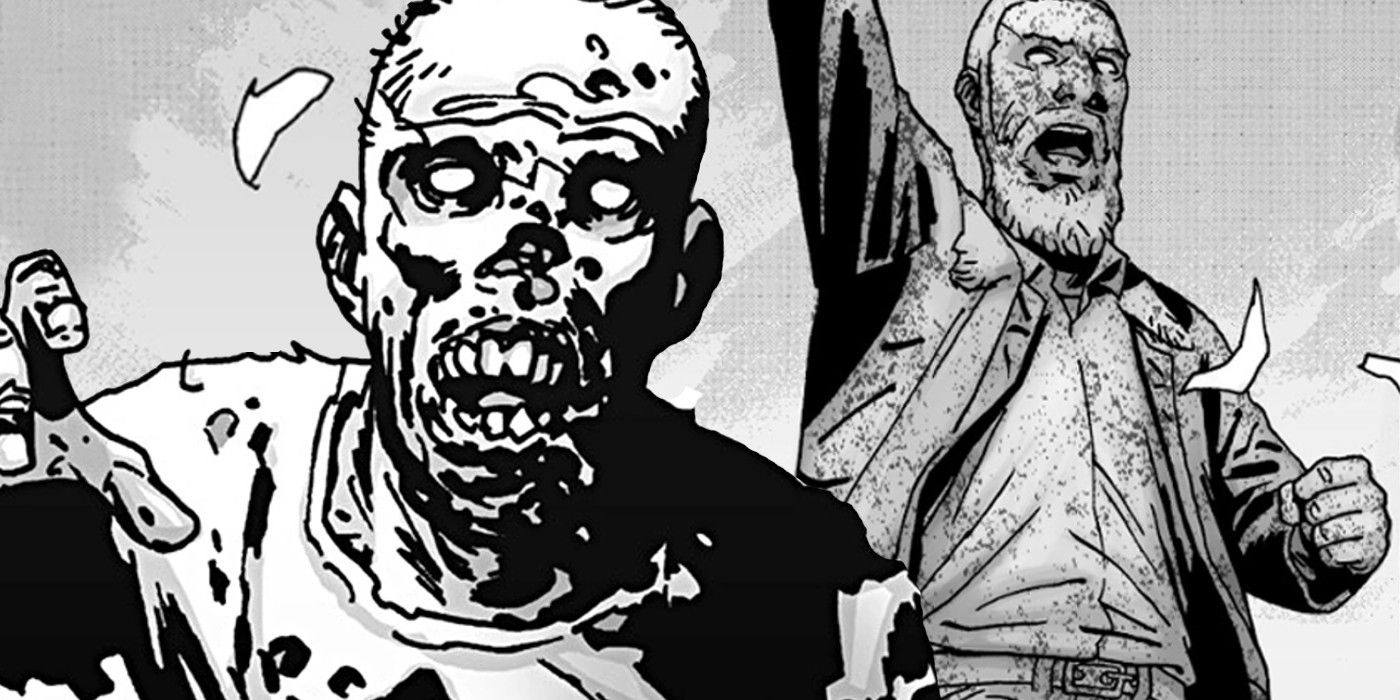





Robert Kirkman’s comments on killing off characters he grew attached to make it clear…that the story’s constant churn through its cast was about more than just the shock value that resulted when characters died tragic, abrupt deaths.
With its zombie outbreak premise, The Walking Dead was, of course, rooted in death, while its story was ultimately about what remained of humanity’s struggles for survival. Without a doubt, the comic had more than its share of evil individuals, but time and time again, creator Robert Kirkman refused to indulge in the common narrative practice of delivering readers catharsis through the deaths of particularly bad characters. Even when the most reprehensible people in The Walking Dead met their ends, it was at most something to be quietly thankful for, rather than celebrate.
Often, the deaths of Walking Dead’s antagonists came at a corresponding cost. Most infamously, the death of the Governor – arguably the first character that could unquestionably be classified as a clear-cut “villain” – was precipitated by the deaths of Lori and baby Judith in Walking Dead #48. Mortality was omnipresent in the comic series from its very opening moments, to its closing panels; Robert Kirkman’s comments on killing off characters he grew attached to make it clear, however, that the story’s constant churn through its cast was about more than just the shock that resulted when characters died tragic, abrupt deaths.
That isn’t to say, however, that Kirkman wasn’t keenly aware of the effect killing off fan-favorite characters had on his audience. As he detailed to EW, he took his own attachment to characters as being reflective of the fact that “audience investment in that character [was] extremely high,” meaning that the opportunity for an emotionally resonant death was at its peak. While the writer framed his approach to character deaths as being in service to the story, Robert Kirkman is too successful of a creator not to have an expert grasp on how and when to push his readers’ buttons.
The Walking Dead Was Defined By Its Character Deaths
A Story Of Endings
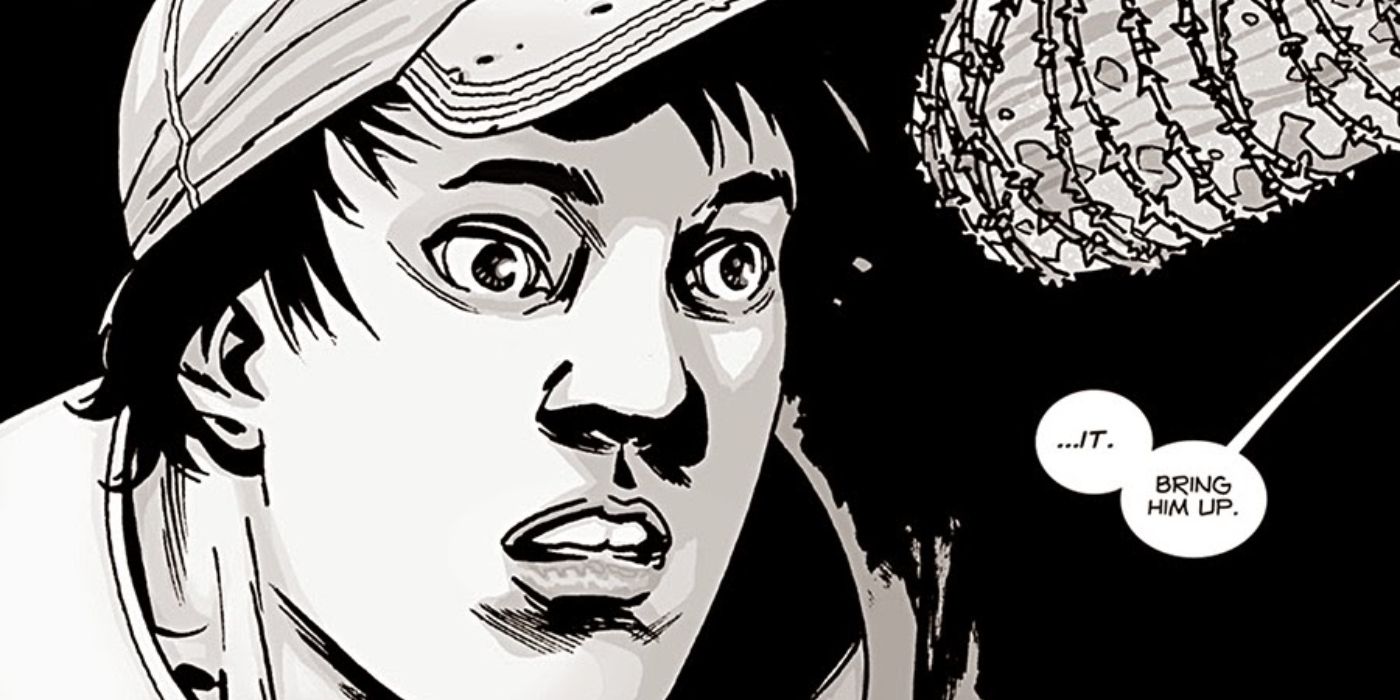
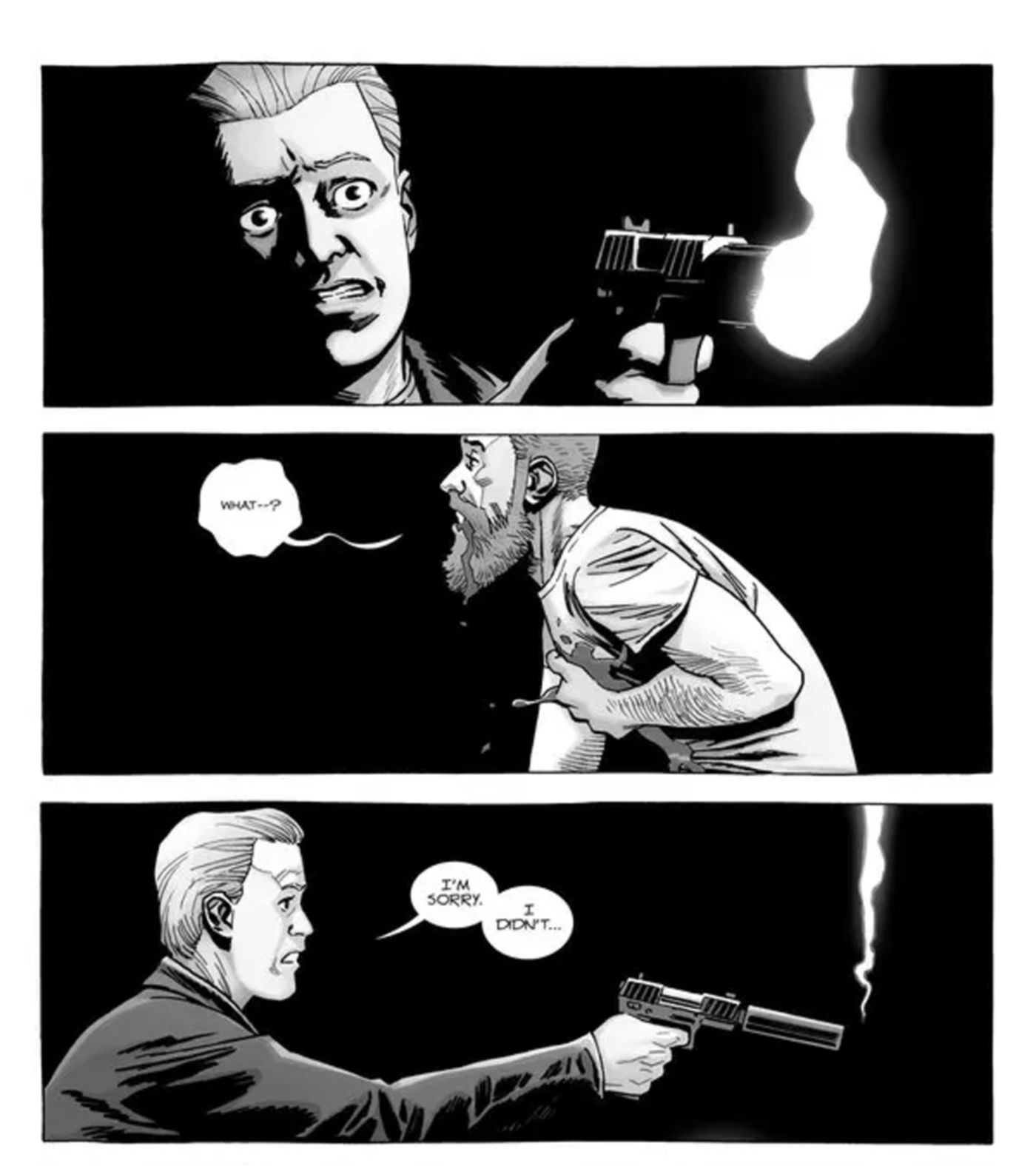
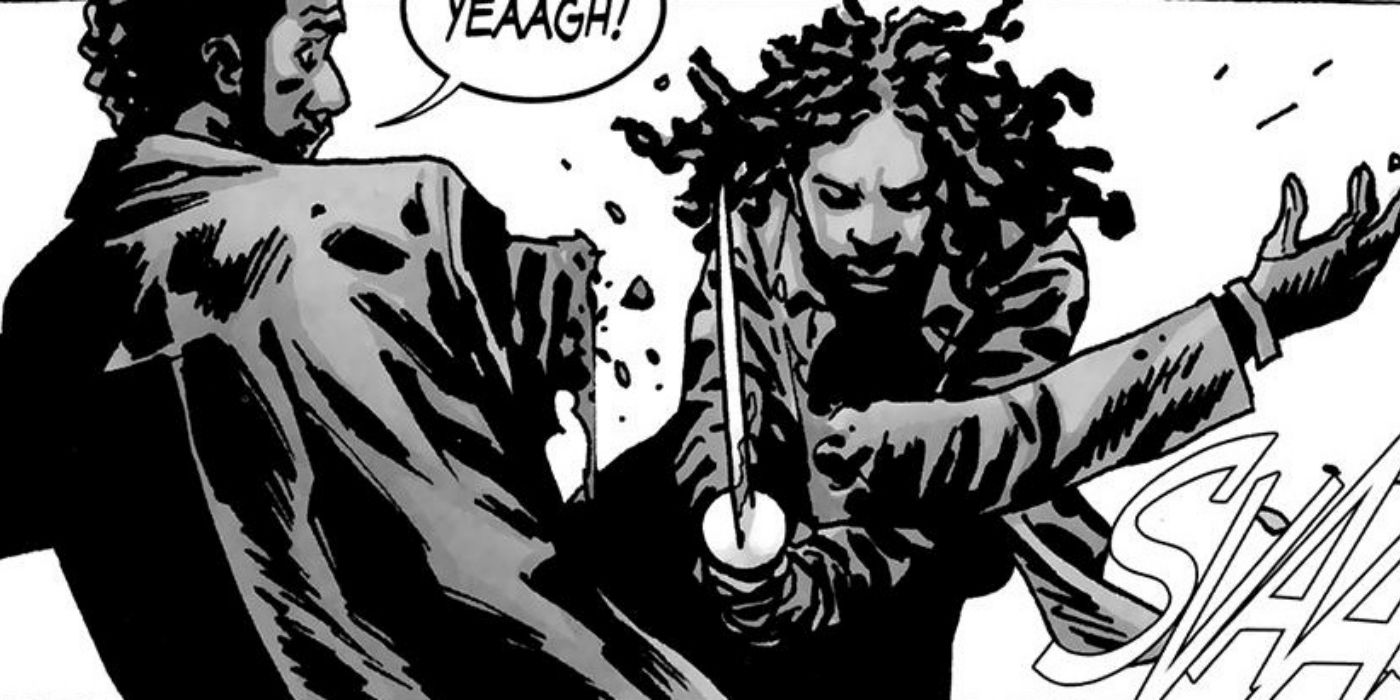
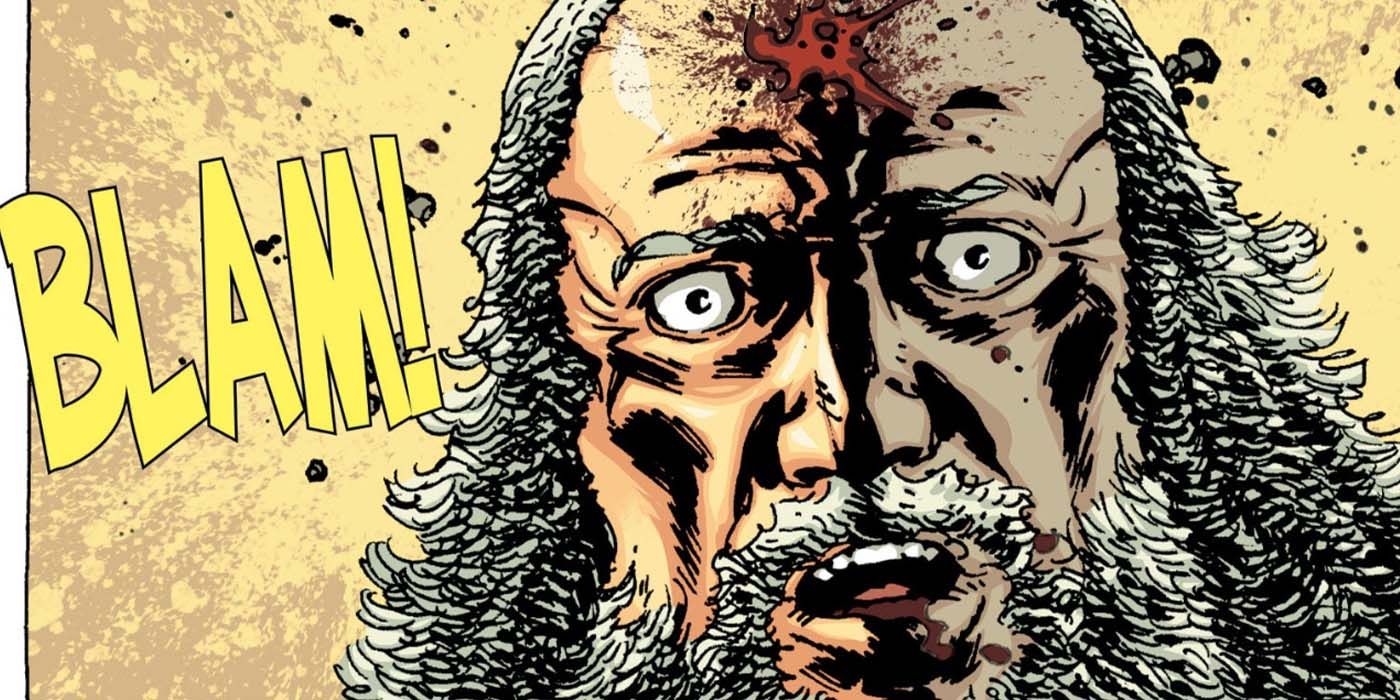
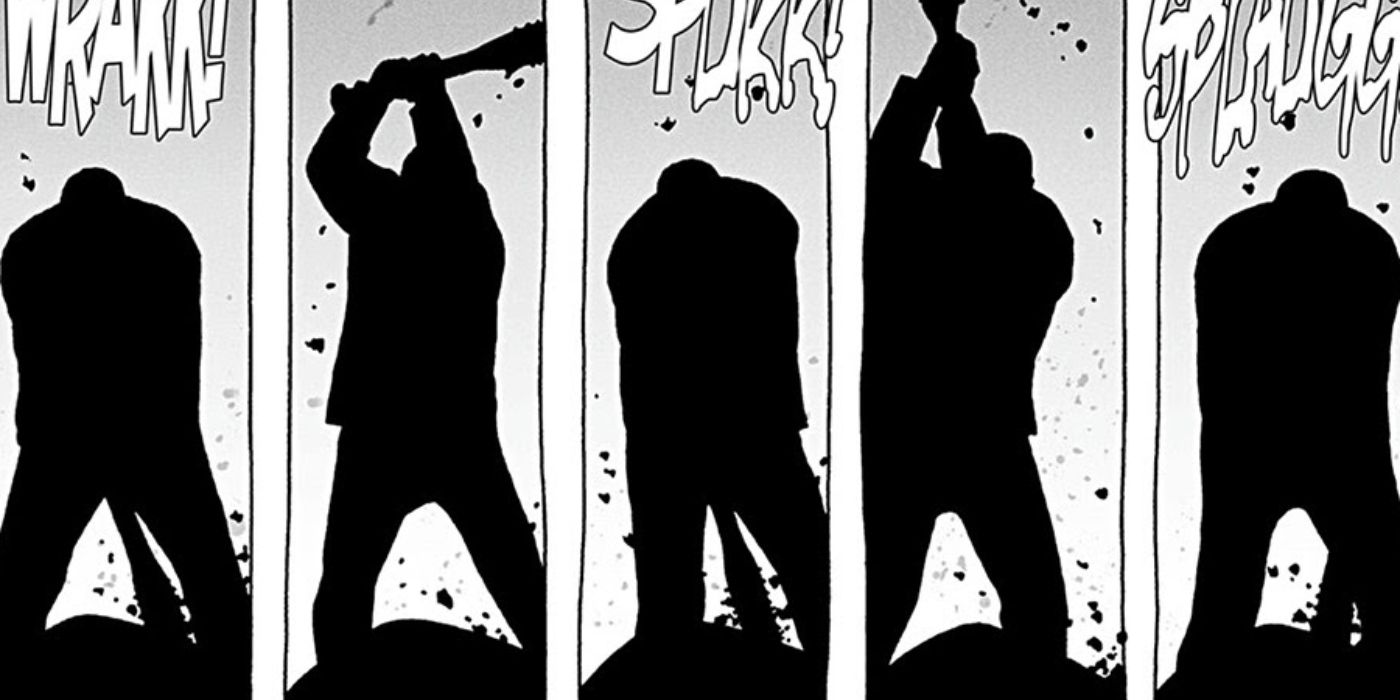





As one classic writing adage goes: ” No tears in the writer, no tears in the reader. ” In order to create deeply resonant fiction, writers like Robert Kirkman…must be prepared to emotionally engage with their work as they’re creating it.
When it comes to the most memorable moments throughout The Walking Dead comic series, character deaths are always at the forefront of the conversation. In part, this is a result of being a horror genre story, particularly a zombie story – though without a doubt, Robert Kirkman effectively doubled down on this at every turn, by crafting some of the most memorable, heartwrenching demises in comic book history. This came from Kirkman’s unflinching willingness to inflict the worst fates on his own favorite characters, knowing that if it emotionally affected him, it would almost certainly have an impact on fans.
As one classic writing adage goes: “No tears in the writer, no tears in the reader.” In order to create deeply resonant fiction, writers like Robert Kirkman first have to develop a sense of what they are responding to themselves, and must be prepared to emotionally engage with their work as they’re creating it. Kirkman’s quote about killing his favorite Walking Dead characters displays a vital awareness of this. In turn, this goes a long way towards explaining The Walking Dead’s greater success as one of the most influential multimedia franchises of the past several decades.

